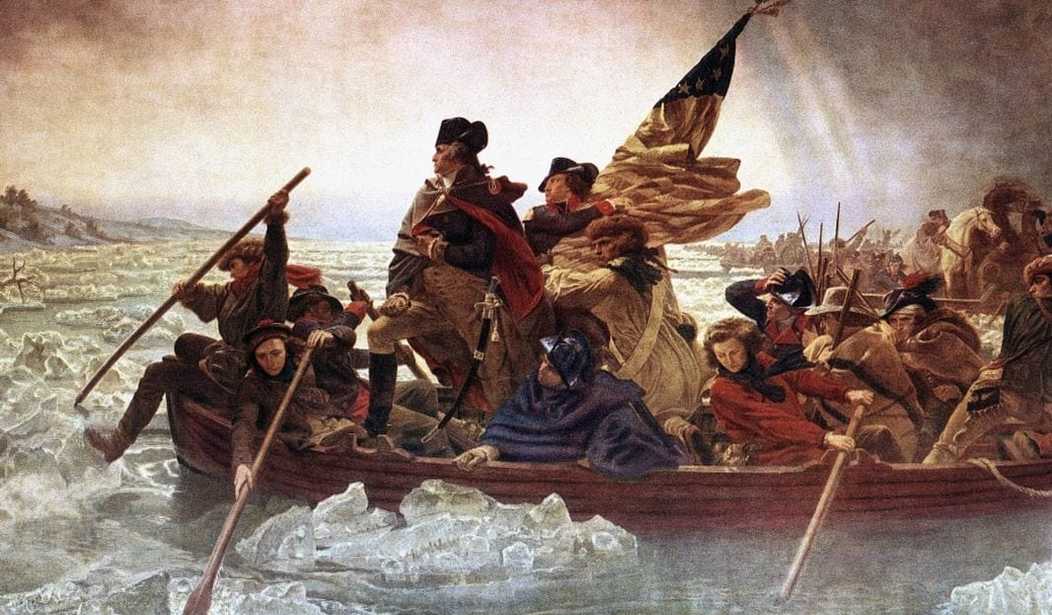Christmas Day 1776 was not a merry one for the Continental Army. Over the course of five months, the British army and their Hessian allies had rudely tossed the Americans out of the states of New York and New Jersey, stopping only because winter had set in. General Sir William Howe, the British commander, settled in comfortable quarters in New York, confident that what was left of the Continental Army would be easy pickings come spring.
Indeed, Washington’s army had been reduced from a high of 20,000 in July to fewer than 5,000 at the end of the year. Most of the army had simply melted away, not wanting to be part of a lost cause.
But George Washington was a gambler. His preferred card game was Whist, a game that was popular in the coffee houses of western Europe. Reportedly, Washington was a master of the ins and outs of the game and was not averse to taking big risks for big rewards.
Washington, viewing the threadbare little army camped on the west side of the Delaware River and knowing he had no food, few supplies, and little hope, determined that pulling the cause of American independence out of the trash bin of history would take the biggest gamble he had ever made.
For weeks his underrated spy network had been bringing him intelligence about what was thought to be the weakest point in the British position in New Jersey. The sleepy little town of Trenton was occupied by 1500 Hessians, who had already gotten a reputation for ruthlessness in battle. But his faithful spies were telling him about the contempt in which the Hessians held the American army and Washington decided to throw the dice and place the future of the young country in the hands of his 2400 hungry, shivering men.
He would divide his little force into three columns, cross the Delaware River downstream from Trenton, and then converge on the little town, taking the Hessians by surprise and winning the day.
As it turns out, the two smaller columns either couldn’t cross the river in the raging ice storm or got lost. It was left to Washington and 2400 men to save the revolution.
Looking back on the crossing and the subsequent American triumph, there seems almost an inevitability to it. But the 2400 soldiers who endured the terrifying river crossing no doubt felt little confidence during the 8-mile march to Trenton.
Indeed, the crossing that was effected on December 25 was such an arduous task that instead of beginning the march to Trenton at midnight, it wasn’t until 4:00 a.m. that the army got underway. At that point, it was thought that all hope of surprise was gone and the Hessians would be ready for them.
But even Washington underestimated the arrogance of the Hessians. Sound asleep at 8:00 a.m. when American skirmishers crept up to their guard posts, the Continentals overpowered Colonel Johann Rall’s men and poured into town. The resulting battle was over in a matter of minutes with the Americans capturing nearly 900 of the enemy while killing and wounding another 80. American losses were two dead of frostbite contracted on the march.
George Washington would go on to lose most of the battles he fought. But it hardly mattered. His victory at the Battle of Trenton made him a hero above all others in the revolution. At the lowest point imaginable, Washington’s huge gamble turned into America’s deliverance.









Join the conversation as a VIP Member